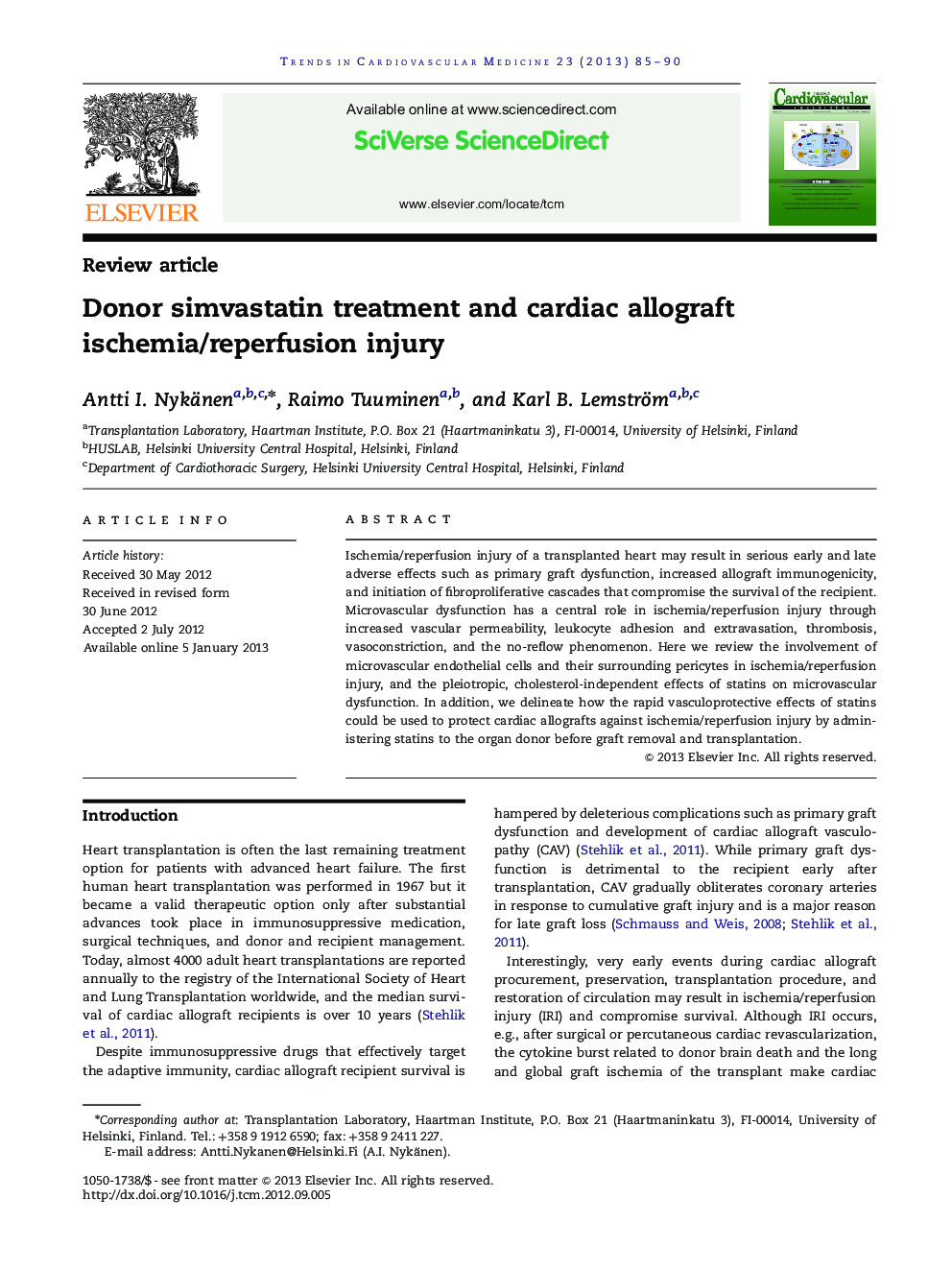| Article ID | Journal | Published Year | Pages | File Type |
|---|---|---|---|---|
| 3030978 | Trends in Cardiovascular Medicine | 2013 | 6 Pages |
Ischemia/reperfusion injury of a transplanted heart may result in serious early and late adverse effects such as primary graft dysfunction, increased allograft immunogenicity, and initiation of fibroproliferative cascades that compromise the survival of the recipient. Microvascular dysfunction has a central role in ischemia/reperfusion injury through increased vascular permeability, leukocyte adhesion and extravasation, thrombosis, vasoconstriction, and the no-reflow phenomenon. Here we review the involvement of microvascular endothelial cells and their surrounding pericytes in ischemia/reperfusion injury, and the pleiotropic, cholesterol-independent effects of statins on microvascular dysfunction. In addition, we delineate how the rapid vasculoprotective effects of statins could be used to protect cardiac allografts against ischemia/reperfusion injury by administering statins to the organ donor before graft removal and transplantation.
